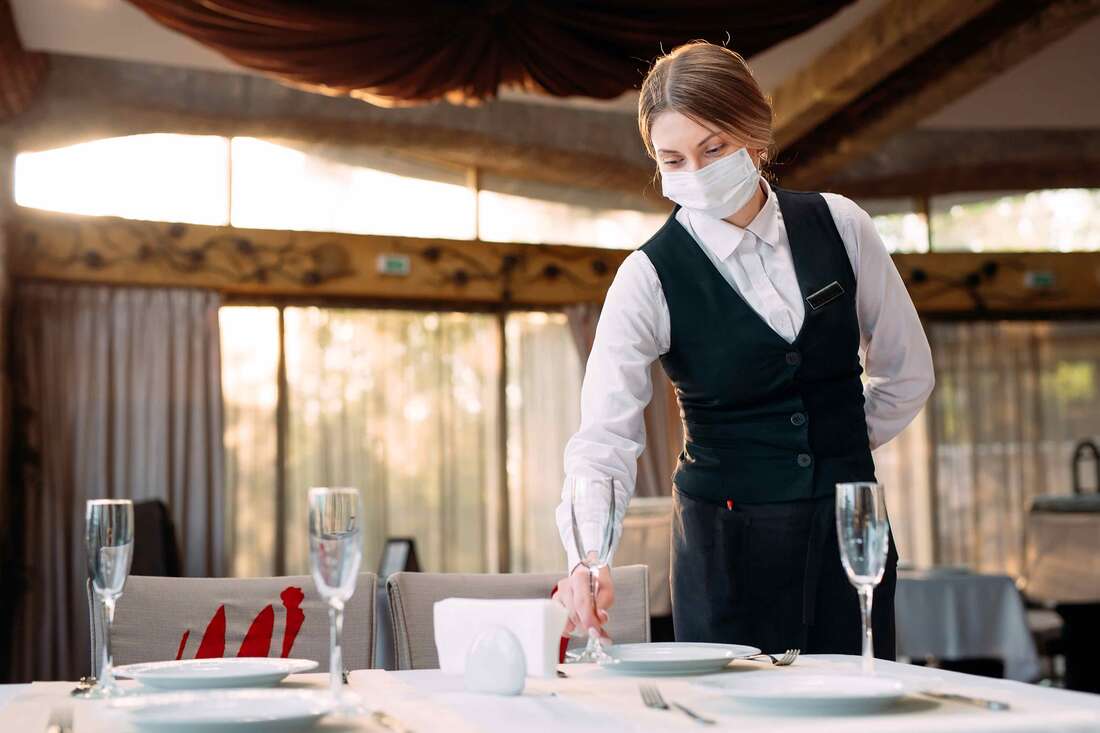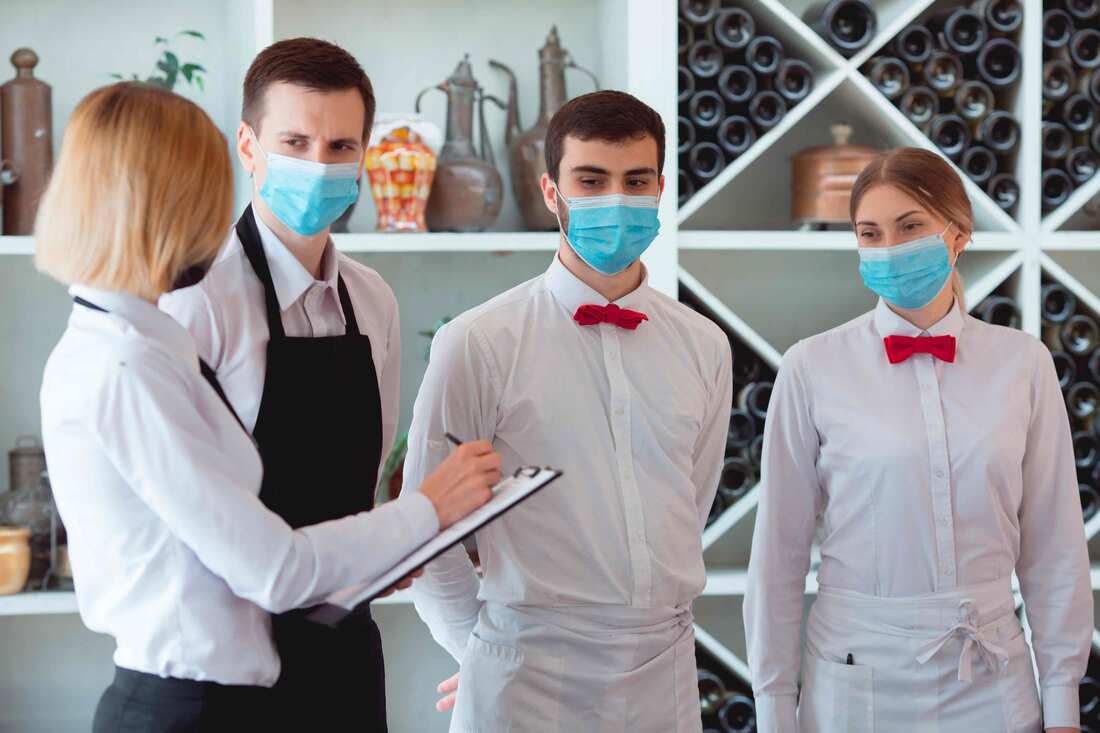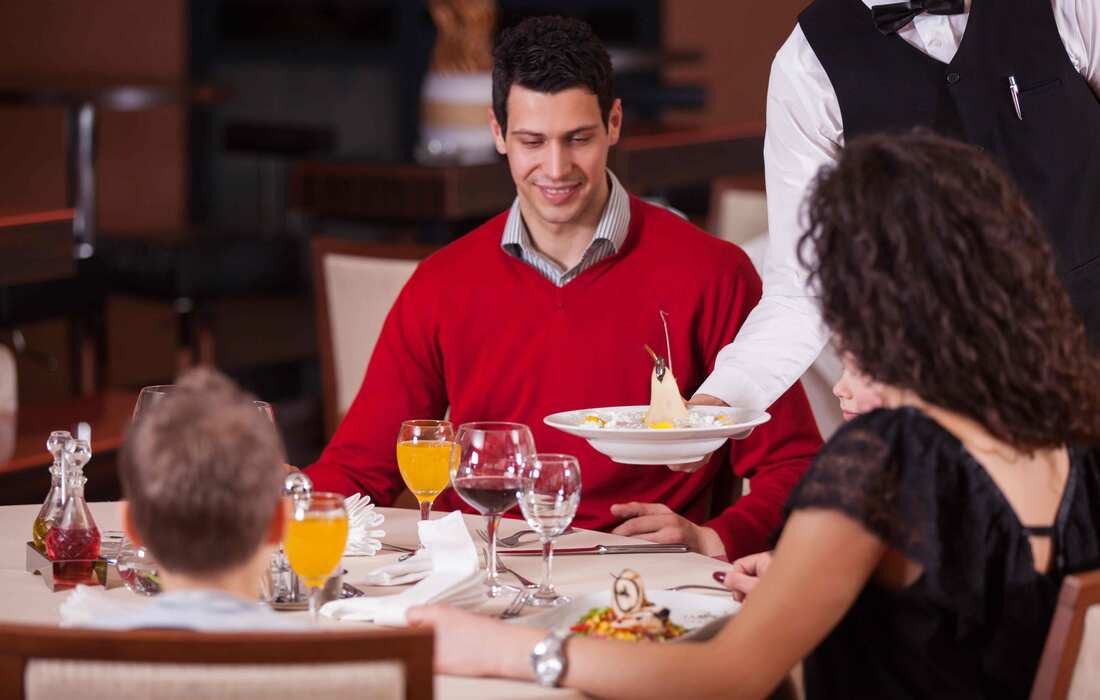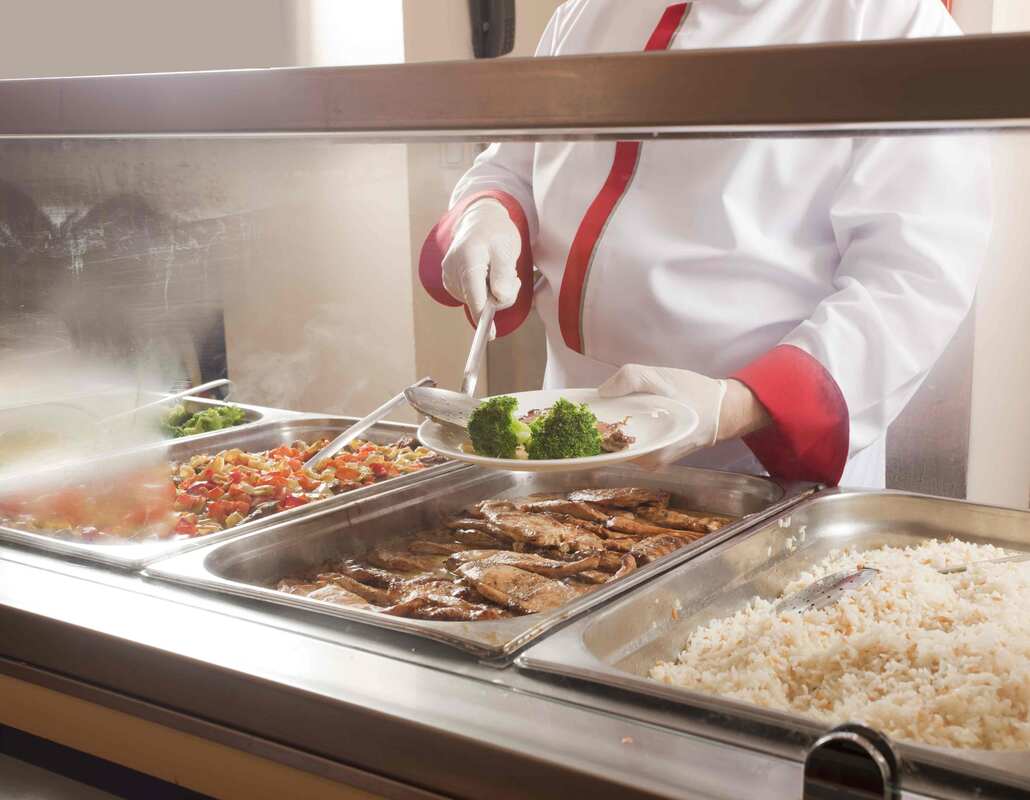HOTELS REIMAGINE FOOD AND BEVERAGE SERVICE WITH NEW MODELS
To lure guests back to restaurants, bars, catered meetings and overnight stays, hotels are creating strict guidelines and innovative changes.
By Patricia Cobe on Jun. 29, 2020
Recreated from Restaurant business online
By Patricia Cobe on Jun. 29, 2020
Recreated from Restaurant business online
|
There’s little question that the pandemic has taken a huge toll on the hospitality industry. While restaurants were able to eke out a little income from takeout, delivery and other initiatives, hotel business almost completely dried up.
“The hotel industry was the first impacted by the pandemic and will be one of the last to recover,” Chip Rogers, president and CEO of the American Hotel & Lodging Association (AHLA), said in a statement. The AHLA claims that the devastation caused to the hotel industry is already 9 times worse than 9/11, with more than 8 in 10 hotels having to lay off or furlough workers since the onset of the health crisis. The good news is that hotels are slowly reopening, and occupancy rates are creeping up from an abysmal 22% in early April—the lowest point—to almost 44% for the week ending June 20, according to the most recent figures from STR, a data analytics firm specializing in the lodging industry. With business meetings practically nonexistent and air travel still at a minimum, most of those rooms are getting booked by local or regional guests looking for a mini vacation close to home. |
“For overnight stays, we’re reaching out to the drive market, guests who are two to three hours away by car,” says Skip Harless,GM of the Skirvin Hilton Hotel in Oklahoma City. The hotel is a historic property with a large local following as well, so the team has been actively promoting its recent reopening through social media and email marketing to bring regulars in for dining.
The Park Hyatt in Washington, D.C., is also targeting local fans of its Michelin-starred restaurant, Blue Duck Tavern, as well as staycationers and families who want a quick getaway, says GM Joseph Cerione. “The first recovered sector is going to be drive-in business. Some of the museums are starting to open up and the sights will entice people to visit D.C.,” he says.
Jeff Klein, VP and managing director of the JW Marriott Turnberry Resort & Spa in Aventura, Fla., is “hyper-focused on the drive market” as well, pushing “safe, local experiences for families. Our summer business in Florida is more local anyway, and this year, we’re seeing more daycationers and staycationers,” he says. The property offers a water park, spa and a couple of dining options, and the customer base for its fine-dining restaurant, Michael Mina’s Bourbon Steak, is always 70% local, he adds.
The Park Hyatt in Washington, D.C., is also targeting local fans of its Michelin-starred restaurant, Blue Duck Tavern, as well as staycationers and families who want a quick getaway, says GM Joseph Cerione. “The first recovered sector is going to be drive-in business. Some of the museums are starting to open up and the sights will entice people to visit D.C.,” he says.
Jeff Klein, VP and managing director of the JW Marriott Turnberry Resort & Spa in Aventura, Fla., is “hyper-focused on the drive market” as well, pushing “safe, local experiences for families. Our summer business in Florida is more local anyway, and this year, we’re seeing more daycationers and staycationers,” he says. The property offers a water park, spa and a couple of dining options, and the customer base for its fine-dining restaurant, Michael Mina’s Bourbon Steak, is always 70% local, he adds.
|
Raising the safety bar
Although some hotel restaurants were doing takeout and delivery during the pandemic, most were waiting until the properties’ official reopening dates to resume service. In the interim, both hotel and restaurant staffs were getting extensive sanitation and safety training. To open, the properties must follow the guidelines specific to the states and municipalities where they are located, but the large chains—Hyatt, Hilton and Marriott among them—all issued more stringent standards to safeguard and reassure guests. “Hyatt partnered with the Global Biorisk Advisory Council (GBAC) for its certification program and training is at the front of every initiative,” says Philippe Cavatore, director of operations at the Park Hyatt Washington. “There is a hygiene captain at every Hyatt property, and as employees come back, they attend a comprehensive training session.” In addition to learning the proper technique for donning and doffing PPE, staff receives a complete rundown on all the sanitizing chemicals and an understanding of “dwell time”—the variable that makes the sanitizers work properly. Marriott’s Commitment to Clean Program also involves extensive training and sanitation upgrades, as does the Hilton CleanStay with Lysol protection program. The JW Marriot Turnberry installed a thermal camera in its lobby to record the body temperature of all guests and staff, and an electrostatic spray machine is used to sanitize all rooms and high touchpoints, including restaurant areas, says Klein. At the Skirvin Hilton, associates receive 36 hours of training on cleaning protocols before they interact with guests. |
|
Dining with a difference
These extra safety measures extend to food and beverage operations, resulting in service and menu changes in hotel restaurants, bars and other venues. The menu at the Skirvin Hilton’s Park Avenue Grill has been streamlined and updated to make the options easy for takeout, says Harless. Breakfast, for example, includes a new overnight oats superfood parfait, which can be made ahead, and a breakfast Cobb salad, topped with a firm poached egg and bacon. An ancient grains bowl with salmon is a lunch or dinner option. “All hold well and can be packaged for guests to pick up outside their door for touchless room service,” says Harless. For bar service in the Red Piano Lounge, complimentary snacks such as nuts and pretzels have been repackaged into individual containers instead of shared bowls, and other shareable bar food has been transformed into individual servings. “Instead of shared flatbreads, for example, we now offer a small pizette—an individual round of crisp crust topped with goat cheese,” says Harless. The bar is also leaning toward individual canned cocktails and canned and bottled beer to reduce bartender interaction. This move also allows customers to take their drinks out to the patio or their room, if they prefer, says Harless. “We’ve also ‘slimmed down’ wine bottles, offering more small-sized splits and some canned wines.” |
The Blue Duck Tavern in the Park Hyatt remained open for carryout during the pandemic, but in late June, it opened for breakfast, lunch and dinner. “We’re not streamlining the menu much because we want to give customers the same experience,” says Cavator. But one signature will be missing, at least in the beginning: the restaurant’s dry-aged, whole-roasted cured duck. “It’s a bit too labor-intensive with limited staff, but it will come back,” says Cavator.
Room service has been recalibrated to reduce contact between hotel staff and guests. “‘Less contact, more care’ is our motto, and guests can order off the entire menu to eat in their room or take outdoors for a picnic,” says Cerione.
Bourbon Steak in the JW Marriott Turnberry annexed a meeting room next door so the restaurant could accommodate more customers at tables spaced 6 feet apart. Tableside service for items such as the classic Caesar salad has been eliminated, and the menu is a little leaner all around, says Klein. “We are menu engineering more frequently to focus on the top sellers and reduce waste.”
Freestyle, the hotel’s quick-service restaurant in the water park, is offering to-go service only. “The space is arranged in a one-way direction to come in and out for ordering, then guests pick up their food at an open takeout window or it is delivered to their lounge chair,” says Klein. On Friday and Saturday nights, Freestyle has a menu of burgers, wraps and sandwiches that can be delivered to a guest’s hotel room.
Room service has been recalibrated to reduce contact between hotel staff and guests. “‘Less contact, more care’ is our motto, and guests can order off the entire menu to eat in their room or take outdoors for a picnic,” says Cerione.
Bourbon Steak in the JW Marriott Turnberry annexed a meeting room next door so the restaurant could accommodate more customers at tables spaced 6 feet apart. Tableside service for items such as the classic Caesar salad has been eliminated, and the menu is a little leaner all around, says Klein. “We are menu engineering more frequently to focus on the top sellers and reduce waste.”
Freestyle, the hotel’s quick-service restaurant in the water park, is offering to-go service only. “The space is arranged in a one-way direction to come in and out for ordering, then guests pick up their food at an open takeout window or it is delivered to their lounge chair,” says Klein. On Friday and Saturday nights, Freestyle has a menu of burgers, wraps and sandwiches that can be delivered to a guest’s hotel room.
|
The new face of catering
To conform with social distancing and other safety guidelines, hotels are working with clients to co-create catered meetings and parties. “Some people still want buffets, so we have retrofitted 10 tables with glass box displays to shield the food,” says Klein. The items are dished out by a gloved and masked server into individual portions. Traditional buffet-style events are not happening at the Park Hyatt Washington, either. “The food is displayed under glass so guests can see it, and it’s served by staff,” says Cerione. “There’s also an increased used of preordered packaged meals that are printed with the name of the customer.” The Skirvin Hilton has the same ban on self-service buffets but offers a server-assisted version as well. For events and parties, clients are also offered a catering menu with several prepackaged meal options. “We want to provide diners with choices similar to what they would get on a buffet, so we include three entrees, two salads and at least two desserts,” says Harless. As restrictions on the size of gatherings are lifted, catered events may evolve. But most hotel operators agree that the self-service buffet is history, at least for the near future. |




